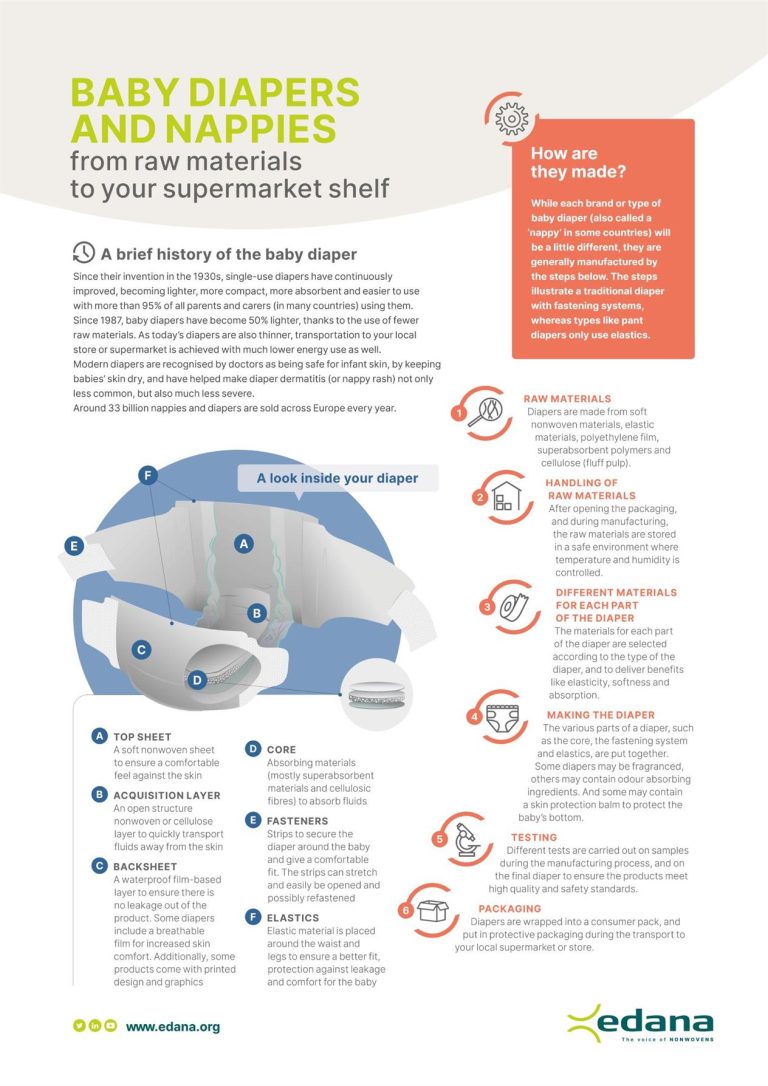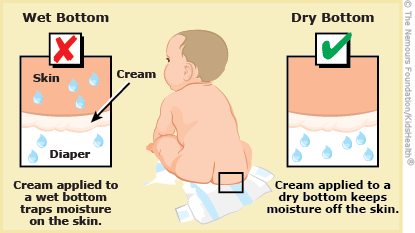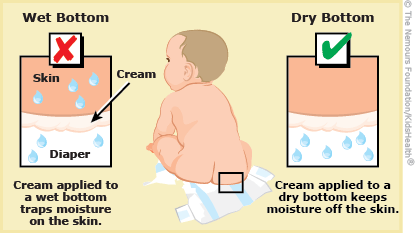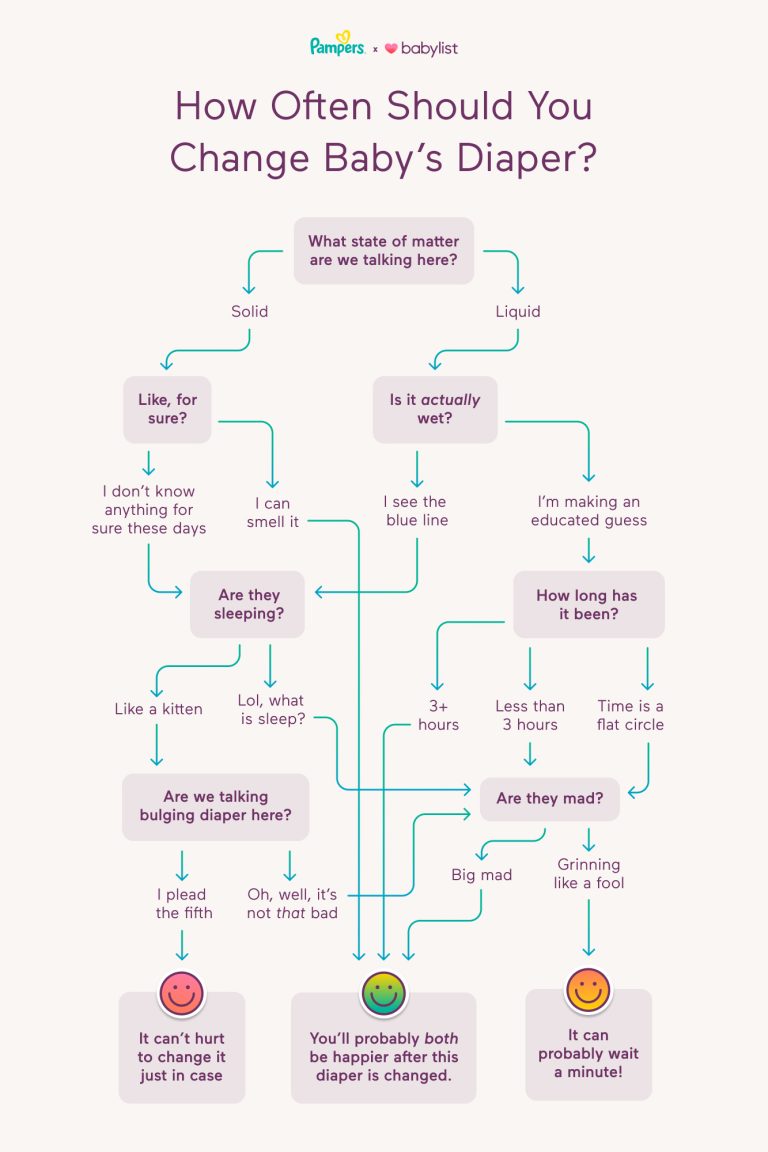Why Do Babies Get Diaper Rash: Causes and Prevention Tips
Babies get diaper rash due to prolonged exposure to moisture and friction from diapers. Irritants like urine and feces can also contribute.
Diaper rash is a common issue many parents face. It often appears as red, inflamed skin on a baby’s bottom. This condition can cause discomfort and distress for both the baby and the parents. Moisture from urine and stool, combined with the friction of a diaper, creates an ideal environment for diaper rash.
Sometimes, the use of certain products or not changing diapers frequently enough can exacerbate the problem. Understanding the causes helps in preventing and treating diaper rash effectively. Regular diaper changes, gentle cleaning, and using barrier creams can significantly reduce the risk.
Causes Of Diaper Rash
Understanding the causes of diaper rash can help in preventing it. Diaper rash is a common issue for babies. It can make them uncomfortable and cranky. Here are some of the primary causes of diaper rash:
Irritation From Stool And Urine
Stool and urine can cause skin irritation. They break down into ammonia, which is harsh on baby skin. Prolonged exposure worsens the irritation.
- Keep the diaper area clean.
- Change diapers frequently.
- Use gentle wipes or water.
Chafing And Rubbing
Diapers that are too tight can cause chafing. The constant rubbing irritates the skin. This leads to redness and rash.
- Ensure the diaper fits well.
- Check for any rough edges.
- Allow some diaper-free time.
Yeast And Bacterial Infections
Yeast thrives in warm, moist areas. Diaper areas provide the perfect environment. Bacterial infections can also develop, causing severe rashes.
- Change diapers promptly.
- Keep the area dry.
- Consult a doctor for persistent rashes.
| Cause | Prevention Tips |
|---|---|
| Irritation from Stool and Urine | Change diapers often, use gentle wipes. |
| Chafing and Rubbing | Ensure proper diaper fit, allow diaper-free time. |
| Yeast and Bacterial Infections | Keep area dry, consult a doctor if needed. |
Symptoms To Watch For
Diaper rash is a common issue for babies. It can cause discomfort and distress. Understanding the symptoms helps parents take quick action. Below are the key symptoms to watch for:
Redness And Swelling
Redness and swelling are the most obvious signs. The affected area may appear bright red. Swelling often accompanies the redness. These symptoms usually show up in the diaper area. Look for redness around the buttocks, thighs, and genitals. Use a clean finger to gently touch the area. If the skin feels warm, it might be inflamed.
Blisters And Sores
Blisters and sores can develop if the rash worsens. These can be small and fluid-filled. Sometimes, they may burst and turn into open sores. Blisters and sores make the skin more vulnerable to infections. Keep an eye out for any yellow crusts or pus. These signs can indicate a bacterial infection. Consult a pediatrician if you see these symptoms.
Behavioral Signs
Babies can’t tell you they’re uncomfortable. Watch for changes in their behavior. They may cry more than usual. They might seem fussy and irritable. Pay attention during diaper changes. If your baby resists or cries, check for a rash. They might also touch or scratch the affected area. These signs can help you identify diaper rash early.
Environmental Factors
Babies often get diaper rash due to various environmental factors. These factors can irritate their sensitive skin. Understanding these can help in preventing diaper rash.
Humidity And Heat
High humidity and heat levels can cause diaper rash. Hot weather makes babies sweat more. Sweat trapped in the diaper area causes irritation. This creates a moist environment perfect for rashes.
To prevent this, keep your baby cool. Ensure the diaper area is always dry. Use lightweight, breathable clothing for your baby.
Chemical Exposure
Chemicals in diapers and wipes can trigger rashes. Some babies are sensitive to certain chemicals. These can be fragrances, dyes, or preservatives.
| Chemical | Possible Effect |
|---|---|
| Fragrances | Skin irritation |
| Dyes | Allergic reactions |
| Preservatives | Redness and rash |
Choose products labeled as hypoallergenic. These have fewer chemicals and are gentler on the skin.
Allergic Reactions
Babies can be allergic to certain materials. This includes diapers, wipes, and even laundry detergents. Allergic reactions cause rashes and discomfort.
Look for signs like redness and swelling. If you notice these, switch to a different product. Always test new products on a small skin area first.
- Avoid scented diapers
- Use fragrance-free wipes
- Choose natural laundry detergents
Simple changes can make a big difference in your baby’s comfort.
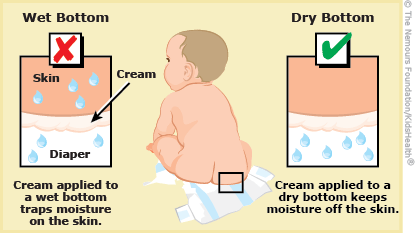
Credit: kidshealth.org
Hygiene Practices
Maintaining proper hygiene helps prevent diaper rash. Cleanliness is key. Here are some essential hygiene practices to follow.
Frequent Diaper Changes
Changing diapers frequently is crucial. Wet diapers cause irritation. Aim for a change every 2-3 hours. Always change diapers immediately when soiled.
Gentle Cleaning
Clean the diaper area gently. Use mild wipes or a soft cloth. Avoid harsh soaps. Pat the skin dry instead of rubbing.
Proper Drying
Ensure the diaper area is dry before putting on a new diaper. Moisture can cause rash. Allow the skin to air dry if possible.
| Practice | Importance |
|---|---|
| Frequent Diaper Changes | Prevents prolonged exposure to moisture |
| Gentle Cleaning | Reduces skin irritation |
| Proper Drying | Prevents moisture build-up |
- Change diapers every 2-3 hours
- Use mild wipes for cleaning
- Allow skin to air dry
Choosing The Right Diapers
Choosing the right diapers is key to preventing diaper rash. Not all diapers are the same. Finding the best fit for your baby can help keep their skin healthy. Here’s what to look for when picking the perfect diaper.
Material Considerations
The material of the diaper matters a lot. Babies have sensitive skin. Diapers made from natural fibers like cotton are gentle. Some diapers use chemicals that can irritate the skin. Look for hypoallergenic options. These are less likely to cause a rash.
Size And Fit
A good fit is essential. Diapers that are too tight can cause chafing. Loose diapers can lead to leaks. Both can cause diaper rash. Use the weight guide on the diaper package. This will help you choose the right size.
Here is a simple size guide:
| Weight (lbs) | Diaper Size |
|---|---|
| Up to 10 | Newborn |
| 8-14 | Size 1 |
| 12-18 | Size 2 |
| 16-28 | Size 3 |
Absorbency Levels
Absorbency is another key factor. Diapers with high absorbency pull moisture away from the skin. This keeps the skin dry and less prone to rashes. Some diapers come with wetness indicators. These help parents know when it’s time for a change.
Consider these points for absorbency:
- Choose diapers with multiple layers.
- Look for gel-based absorbent cores.
- Opt for quick-drying materials.
A dry diaper means a happy baby. Keeping your baby comfortable helps prevent diaper rash.
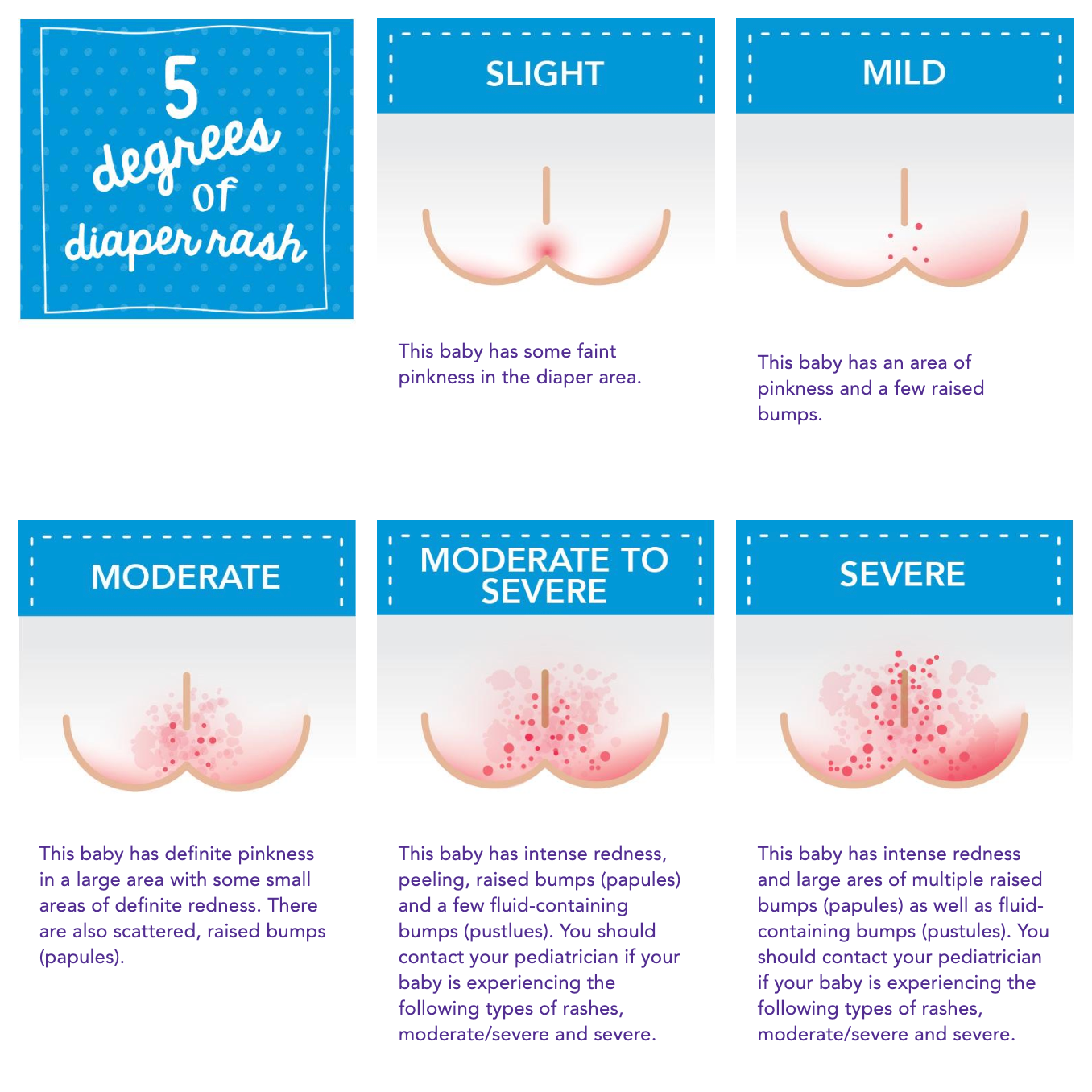
Credit: www.eliandalibaby.com
Effective Barrier Creams
Diaper rash is a common issue for babies. One effective way to prevent it is by using barrier creams. These creams create a protective layer on the baby’s skin, reducing irritation. This section will explore various types of barrier creams.
Zinc Oxide Products
Zinc oxide is a popular ingredient in many diaper rash creams. It forms a thick barrier that protects the skin from moisture. This helps in healing the rash and preventing new ones.
- Forms a strong barrier against moisture
- Helps in rapid healing of the skin
- Prevents new rashes
Many parents trust zinc oxide creams for their effectiveness. Examples include Desitin and Boudreaux’s Butt Paste.
Petroleum Jelly
Petroleum jelly is another excellent barrier cream. It is simple, yet very effective. It locks in moisture and keeps irritants away from the skin.
- Creates a moisture barrier
- Easy to apply and remove
- Cost-effective option
Brands like Vaseline offer great petroleum jelly products. They are widely available and easy to use.
Natural Alternatives
Some parents prefer natural alternatives for their babies. These options use ingredients like coconut oil or shea butter.
- Gentle on sensitive skin
- Free from chemicals
- Often have added benefits like soothing properties
Natural products like Earth Mama and Burt’s Bees are popular. They offer effective protection with natural ingredients.
Home Remedies
Diaper rash can be uncomfortable for babies. Thankfully, some home remedies can help soothe and heal the irritated skin. These natural treatments are gentle and effective.
Air Time
Allowing your baby to have some air time can help heal diaper rash. Air exposure keeps the area dry and reduces irritation. Here are a few tips:
- Lay your baby on a soft towel without a diaper.
- Ensure the room is warm to keep your baby comfortable.
- Let the baby enjoy air time for 10-15 minutes.
Oatmeal Baths
Oatmeal baths can soothe diaper rash. Oatmeal contains anti-inflammatory properties. It helps reduce redness and itching. Here’s how to prepare an oatmeal bath:
- Grind plain oatmeal into a fine powder.
- Add the oatmeal powder to warm bath water.
- Let your baby soak for 10-15 minutes.
Pat your baby dry gently with a towel after the bath.
Aloe Vera
Aloe Vera is known for its healing properties. It can soothe and heal diaper rash effectively. Follow these steps:
- Choose pure Aloe Vera gel.
- Apply a small amount to the affected area.
- Let it dry before putting on a new diaper.
Aloe Vera provides a cooling effect and promotes quick healing.
When To See A Doctor
Diaper rash is common in babies, but sometimes it needs medical attention. Knowing when to see a doctor can help your baby feel better faster.
Persistent Rash
If the rash lasts more than a few days despite home treatment, it’s time to call the doctor. A persistent rash can indicate a more serious issue.
Signs Of Infection
A diaper rash can sometimes get infected. Here are signs to watch for:
- Blisters or open sores
- Pus or yellow scabs
- Fever
- Swelling or redness beyond the diaper area
If you see any of these symptoms, contact your doctor right away.
Treatment Options
Doctors may recommend different treatments for severe diaper rash. Here are some options:
| Treatment | Description |
|---|---|
| Topical Ointments | Medicated creams to reduce inflammation |
| Oral Antibiotics | For bacterial infections |
| Antifungal Creams | For yeast infections |
Always follow the doctor’s advice for the best results.
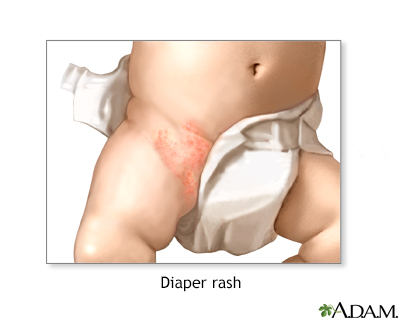
Credit: www.mountsinai.org
Frequently Asked Questions
What Causes Diaper Rash In Babies?
Diaper rash in babies is caused by prolonged exposure to moisture. This creates a breeding ground for bacteria and fungi. Tight diapers and friction can also contribute.
How Can I Prevent Diaper Rash?
To prevent diaper rash, change diapers frequently. Ensure the baby’s skin is dry before putting on a new diaper. Use a barrier cream.
What Are The Symptoms Of Diaper Rash?
Symptoms of diaper rash include red, inflamed skin. You may also notice small bumps or blisters. The baby may seem uncomfortable.
Can Certain Foods Cause Diaper Rash?
Yes, certain foods can cause diaper rash. Acidic foods like citrus and tomatoes can irritate sensitive skin. Monitor your baby’s diet.
Conclusion
Understanding why babies get diaper rash helps parents take preventive measures. Keep the diaper area clean and dry. Use hypoallergenic products and ensure frequent diaper changes. These steps can significantly reduce the risk of diaper rash. Happy, healthy babies make for happy parents.



